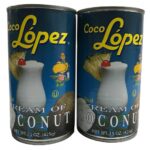Coconut flour is mainly used as a substitute for wheat flour especially by people who are gluten intolerant. Coconut flour is very rich in fibre, protein and fat but it is low in carbohydrates as compared to other flours. Moreover, coconut flour is rich in minerals like manganese, potassium, phosphorus and selenium. Coconut flour is also a very good absorbent of liquids as compared to other types of flour thus, finding a substitute that lives up to its glory is very hard. This article highlights some of the substitutes of coconut flour that can be used if you do not have coconut flour in your house.
Contents
Almond flour
NB: almond flour is the best substitute for coconut flour however, it is very rich in omega 6 polyunsaturated fats so try not to over consume it.
When you cannot find coconut flour in your local store then you can just buy almond flour since it acts as a substitute for coconut flour. Almond flour is made from ground almonds and it is very high in fibre, vitamin E and proteins. Almond flour is gluten free just like coconut flour and it also has a lower content of carbohydrates just like coconut flour. Furthermore, almond flour is not only suitable for people who are gluten intolerant but also for people who are diabetic since it has a low glycemic index. The downside of almond flour is that it is a bit more expensive than coconut flour. Moreover, it is not as absorbent as coconut flour meaning it does not absorb liquids fast as compared to coconut flour.
Cassava flour
NB: cassava flour has a similar texture as wheat flour so when you are substituting coconut flour with cassava flour you need to reduce the amount of liquid that you put in the recipe since cassava flour is not as absorbent as coconut flour.
Cassava flour is another good substitute for coconut flour. It is made from yuca which is the name given to the root of a cassava plant. Cassava flour is gluten free just like coconut flour, thus making it a good substitute. Its texture is very fine and dry and also it has a neutral flavour that does not over power food. This means it works well with both sweet and savoury dishes. However, the downside of cassava flour is that it is very high in carbohydrates so if you are a diabetic you might need to reduce your intake of cassava flour. Furthermore, since cassava flour is not as absorbent as coconut flour it means that for any recipe that requires you to use 1 teaspoon of coconut flour you will have to use 3 or 4 teaspoons of cassava flour.
Soy flour
NB: soy flour is a substitute of coconut flour but it has a bean flavour to it, so it can sometimes over power the dish.
When you have run out of coconut flour you can use soy flour as a substitute. Soy flour is made from dried soybeans that are then milled to form soy flour. It is gluten free just like coconut flour and it is also high in protein. When using soy flour to substitute coconut flour it is important to double the amount of soy flour and add more liquid to the given recipe.
Rice flour
Rice flour can be used to substitute coconut flour for either cooking or baking. It is also gluten free so it is a decent substitute for people who are gluten intolerant or for people who are simply trying to cut down on gluten. When choosing rice flour as a substitute for coconut flour you can either take white rice flour or whole grain rice flour. However, white rice flour is the best since the grain is more refined and it has a finer and softer consistency to it. When substituting coconut flour with rice flour you should add 3 teaspoons more for every 1 teaspoon of coconut flour required by the recipe.
Flax meal
NB: flax meal usually acts as a substitute for both coconut flour and eggs in many recipes, but if you want to use it in a recipe that has eggs then you have to use it in combination with almond flour.
Flax meal can be used as a substitute of coconut flour since it is gluten free. Flax meal contains omega-3 fatty acids so it usually acts as both a flour and oil and many recipes. It is also rich in protein just like coconut flour. When using flax meal as a substitute for coconut flour it is encouraged to use it in combination with almond flour. However, if you wish to use it on its own or if you do not have almond flour then you can just cut down on some ingredients in the recipe for example eggs or any liquids so that the recipe you are trying to follow really comes out
Conclusion
Coconut flour is a gluten free substitute of wheat but it is usually on demand, thus sometimes you will not find it at your local grocery store. However, this should not limit you from cooking your favourite dishes that require coconut flour, you can simply use substitutes. It is important to know that these substitutes are priced differently in grocery stores so you can always buy the one that you think is affordable to you. Almond flour is the best substitute for coconut flour this is because it has most of the major characteristics that coconut flour has but sometimes it can be a bit more expensive than coconut flour. If you cannot afford it then you can try other substitutes for coconut flour which include cassava flour, soy flour, rice flour and flax meal. It is important to take note that in some cases you have to adjust the ingredients in the recipes so that you can get satisfactory results since coconut flour has some unique properties which are not found in its substitutes.







